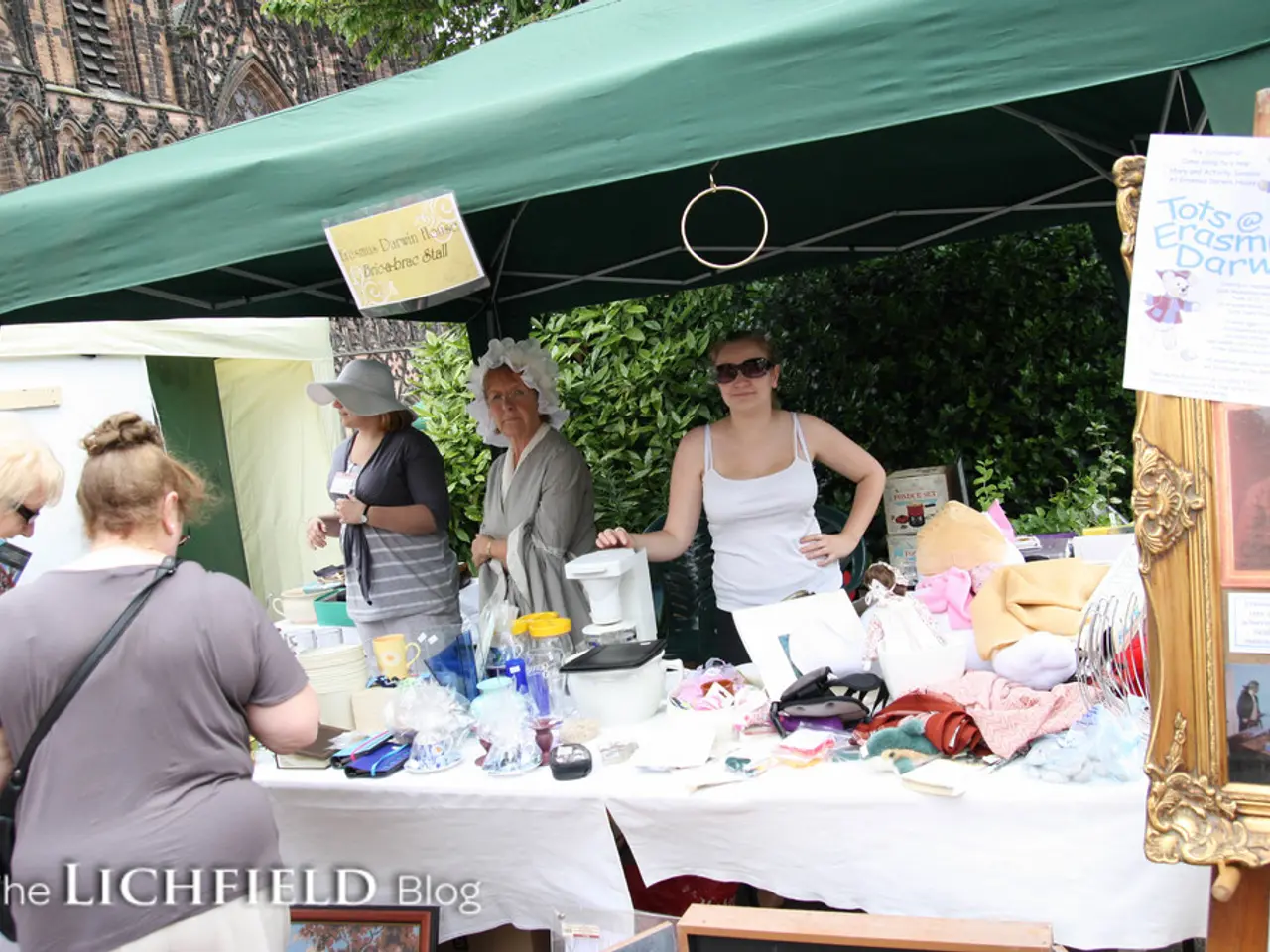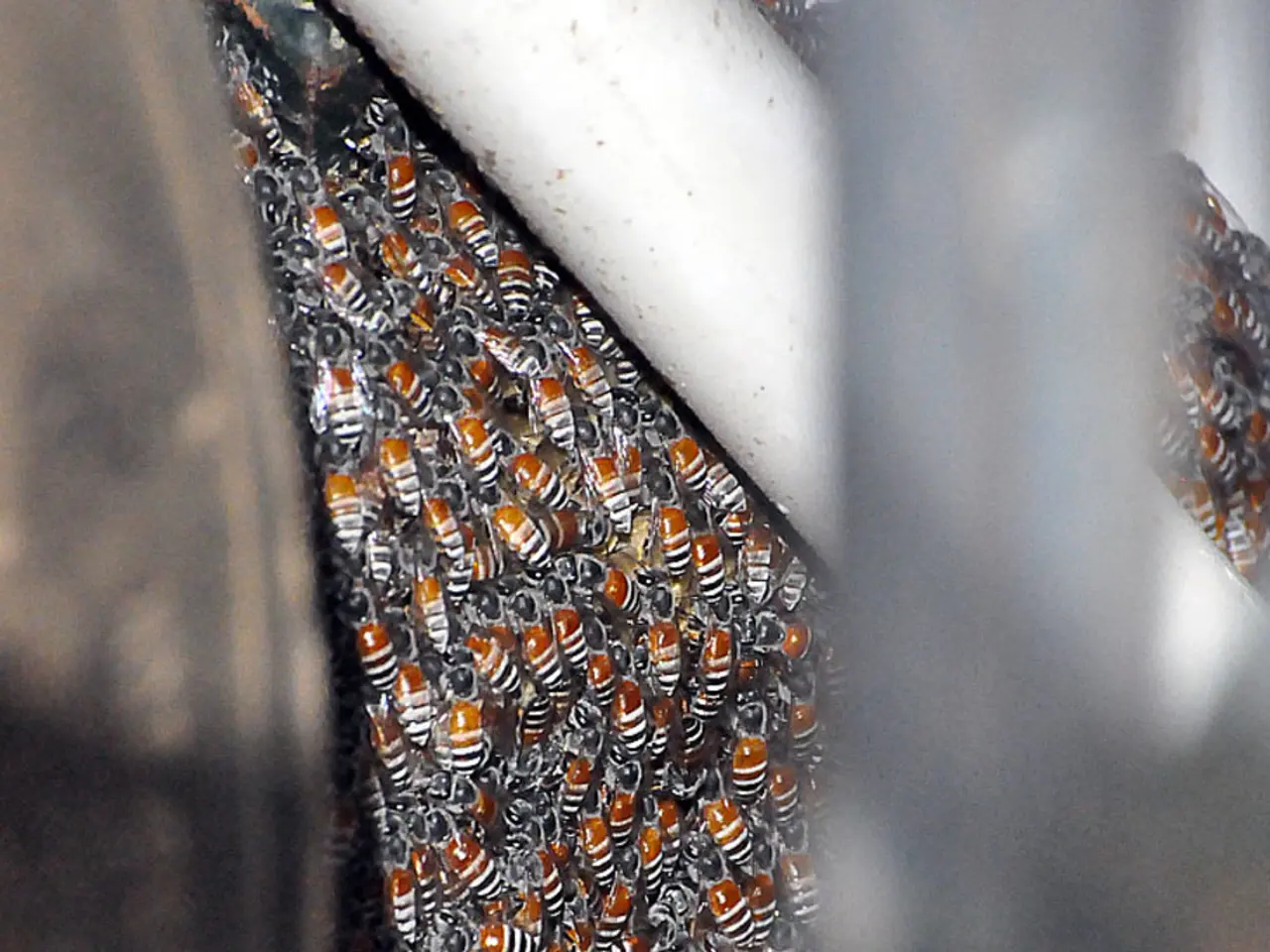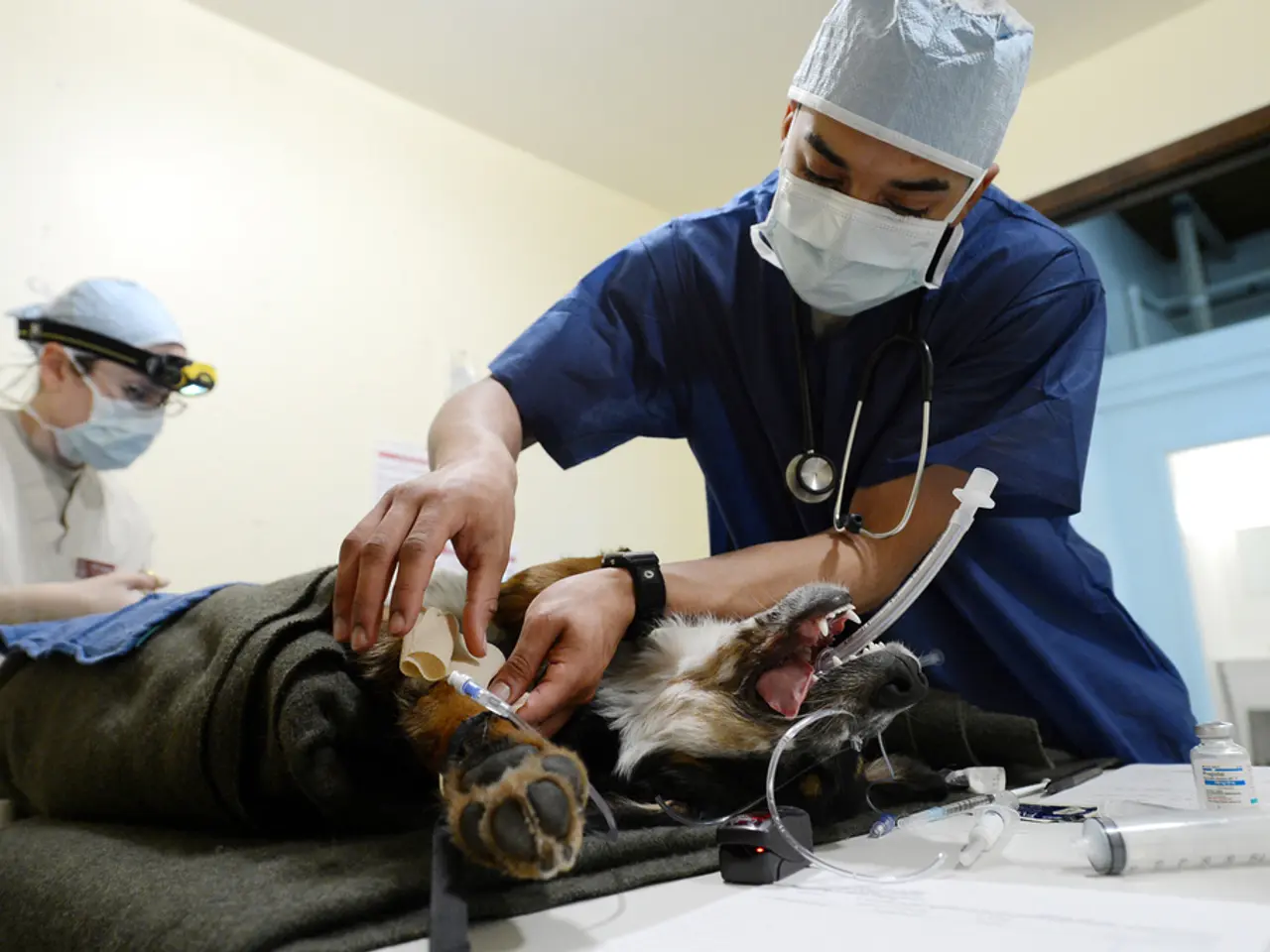Holocaust survivor's bell tolls in honor of her granddaughters - Heirloom ring, once belonging to a Holocaust survivor, passes to granddaughters.
In a poignant moment of remembrance, the family of Halina Kucharczyk, a survivor of the Ravensbrück women's concentration camp, was reunited with a cherished piece of their grandmother's past. Halina, who passed away in her native Poland in 1999, was among the tens of thousands of individuals imprisoned in Ravensbrück during World War II.
The ring, which was among the items stored in the camp's effects room by the Nazi SS, was returned to Halina's granddaughters, Sylwia and Anna Kucharczyk. The return was facilitated by the Stolen Memory initiative of the Arolsen Archives, a part of UNESCO's World Documentary Heritage.
The Stolen Memory initiative aims to return personal belongings of Nazi victims to their relatives, preserving the memories and experiences of those who suffered during the Holocaust. The Arolsen Archives, based in Germany, store many thousands of personal objects taken from victims of Nazi persecution, including survivors of concentration camps like Ravensbrück.
Ravensbrück, near Fürstenberg/Havel, was the largest German women's concentration camp, built in 1939. Over 120,000 women, 20,000 men, and around 1,000 female juveniles were imprisoned in Ravensbrück between 1939 and 1945. Tens of thousands of people were murdered or died of starvation, disease, or as a result of medical experiments in the camp.
In spring 2025, a woman established contact with Halina's family through the cemetery administration of the Polish city of Radom. This connection led to the discovery of Halina's ring, which was among the items held by the Arolsen Archives. A volunteer with the Stolen Memory initiative then traced Halina's family, setting in motion the process to return the ring to its rightful owners.
Halina was arrested by German occupiers in Warsaw in 1944 and deported to Ravensbrück. She was liberated on May 2, 1945. The return of her ring marks a significant moment for her family and the remembrance of the Holocaust, serving as a poignant reminder of the resilience and strength of those who survived the horrors of the concentration camps.
The items taken from people in concentration camps include wristwatches, letters, photos, and wedding rings, each one carrying a story of survival and loss. As we remember the victims of the Holocaust, the return of these personal belongings offers a tangible connection to the past, helping to keep alive the memories of those who suffered and the lessons we must never forget.
The return of Halina's ring, a poignant relic of her past as a survivor of Ravensbrück, was facilitated by the Stolen Memory initiative of the Arolsen Archives, an effort dedicated to community aid by returning personal belongings to the families of Nazi victims. This initiative underscores the importance of science and health-and-wellness, including women's health, as it works to preserve the memories and experiences of Holocaust survivors.




